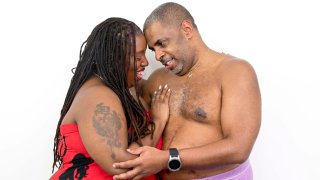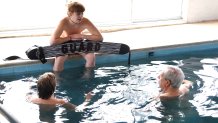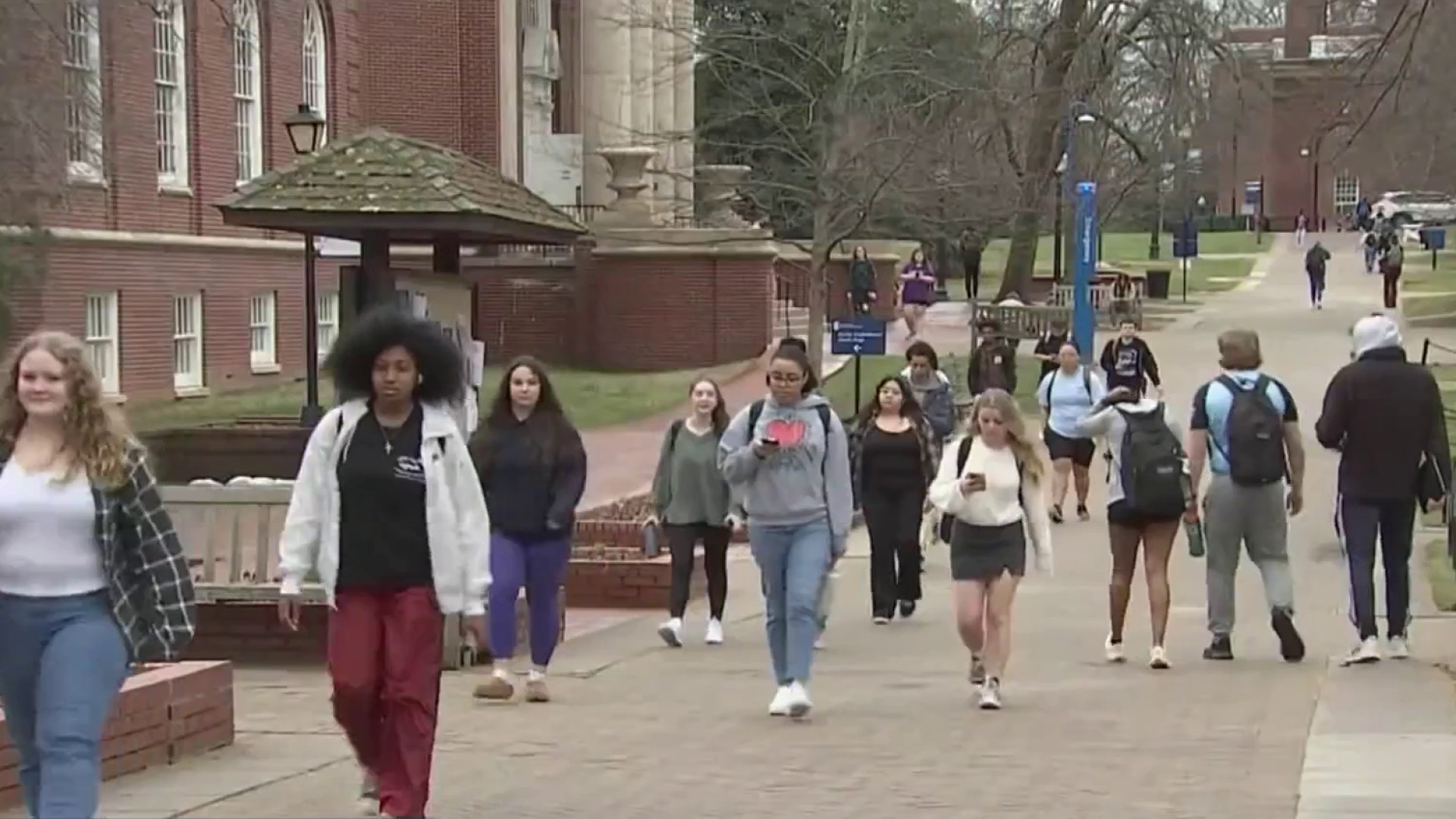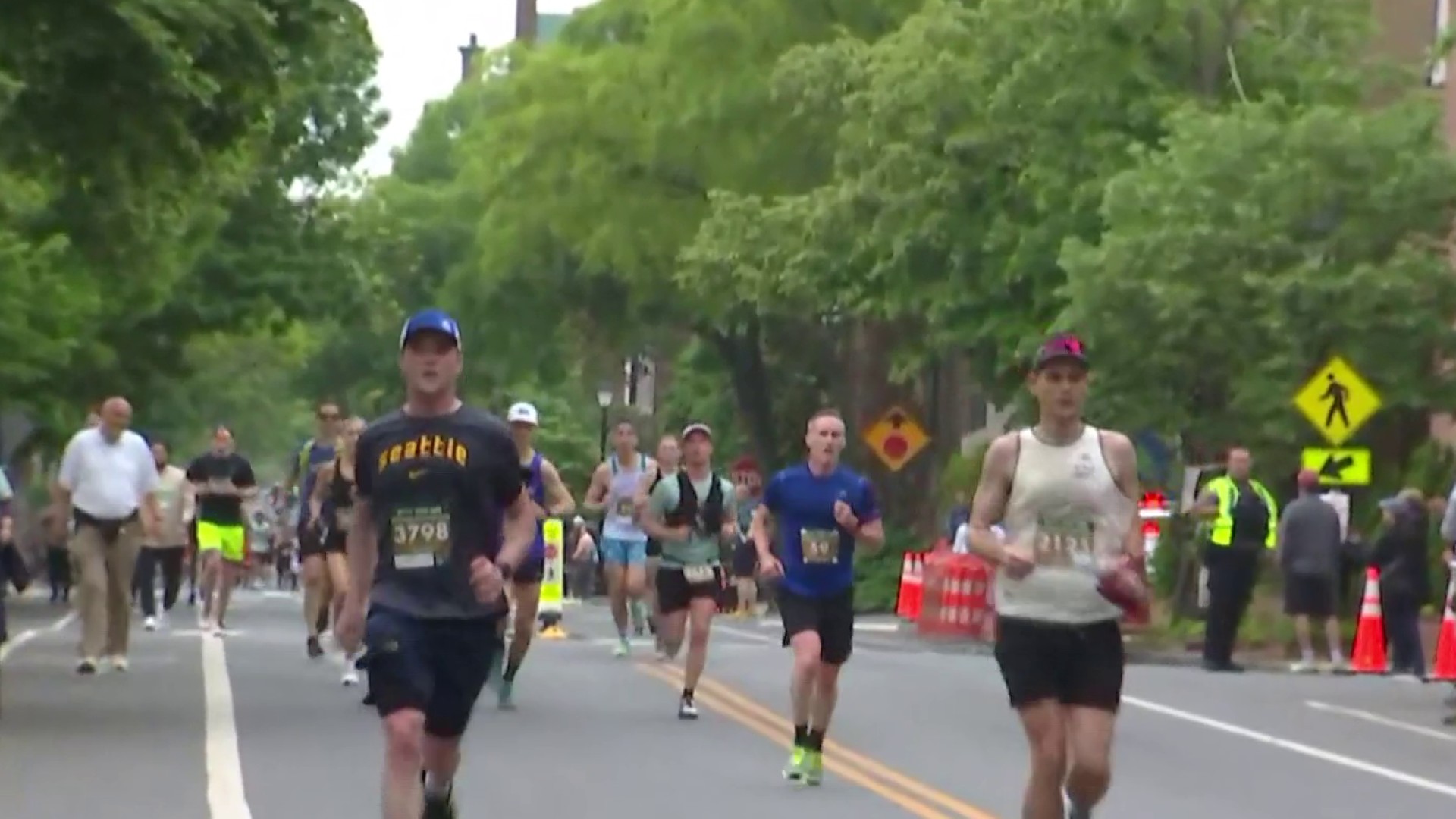
Everywhere Adrian Spruill and Eddie Richburg looked there were acres of lush trees and white bodies. They were the only black people in sight, and everyone kept mentioning it. The couple felt like they’d been dropped into a scene from the movie “Get Out.”
Except they were naked.
Like the 2017 film, in which a young black man’s visit with his white girlfriend’s overly solicitous family evolves into a horror story, Spruill and Richburg’s visit to the Pine Tree Associates nudist club left them feeling tokenized.
Spruill and Richburg aren’t the club’s only critics. After other recent incidents with black visitors, an advocacy group for black naturists asked the American Association of Nude Recreation to investigate Pine Tree’s practices.
We're making it easier for you to find stories that matter with our new newsletter — The 4Front. Sign up here and get news that is important for you to your inbox.
As a culture developed in secret, nudism has long struggled with letting the outside world in. Pine Tree’s 400 plus membership remains almost entirely white, heterosexual couples. This summer, it agreed to start letting in same-sex couples — a big step for the club — yet it still struggles with race: an even older issue of inclusion.
Pine Tree is associated with the American Association of Nude Recreation, which counts more than 200,000 members nationwide, including 800 in Maryland.
While there are several nudist organizations in Maryland, the state is home to only two nudist resorts. Pine Tree sits on the border of Annapolis and Crownsville. The other is the Maryland Health Society in Davidsonville. Officials there declined to comment for this article.
Local
Washington, D.C., Maryland and Virginia local news, events and information
Pine Tree spokeswoman Sandy Desautels said the club’s most vocal members are its oldest, who also are the most reluctant to see change come to the 96-acre resort.
“We’re a fairly conservative club, so it takes some time. [Older members] are worried about the club and want to make sure it sticks around," Desautels said. "It’s a don’t-rock-the-boat kind of thing.”

As the world outside Pine Tree changes, the club may need to adapt to survive, especially as nudism grows in popularity among younger, more diverse populations.
“It’s a cultural movement and it’s going to hinge on the tectonic plates of society,” said Sarah Schrank, a sociologist at California State University who published a book on nudism last year. "The idea of a world where you can be naked and it’s not about your sexual behavior and it’s not porn is appealing to millennials.”
But Pine Tree, founded in the 1930s, remains seemingly stuck in the past.
The club’s former spokesman, Bill Pacer, said Pine Tree has shut out the world since he worked there in the 1980s and 1990s.
“They have improved some, but I don’t think they realize Woodrow Wilson is no longer president,” Pacer said. “They put up a wall of fear of people finding out about them.”
That’s because in the world Pine Tree was founded in, finding out your neighbor or coworker was a nudist was shocking. The club started on a farm north of Annapolis whose family owners had been hosting a “secret society” of nudists. This also was a world that was largely segregated by race and unwelcoming to the LGBTQ community.
Still, Pine Tree officials say the club wants to change.
“A lot more people of color have come through this club in the last couple years,” said Chip Marvel, Pine Tree’s second vice president and a board member. “We’re not as vanilla as we used to be.”
'Losing Out Big Time'
When Richburg and Spruill visited Pine Tree last summer, the Columbia couple hoped to find a judgment-free zone to relax. Instead, the tour and the people they met only made them feel uncomfortable. Richburg felt the club saw him more as a potential marketing tool.
“I’ve never been to a place where they kept mentioning the color of my skin or kept mentioning the word diversity,” Richburg said.
Richburg posted about the couple’s July visit on Yelp. He wrote that Spruill, 45, felt forced to take off her bikini bottoms and that almost all their interactions with members included someone pointing out their race.
As longtime nudists and members of the Black Naturists Association and the American Association of Nude Recreation, Richburg and Spruill say they are well-versed in the common rules of nudist clubs, including that clothes usually are allowed for medical reasons such as menstruation.
But Spruill was told that even though she was on her period, if she didn’t take her bottoms off she would have to come back another day.
“I couldn’t get comfortable for the whole time I was there,” Spruill said.
Desautels said the volunteer couple giving Richburg and Spruill the tour was wrong. She acknowledged the situation should have been handled better.
Desautels said not having many minorities isn’t entirely the club’s fault.
“Part of it is they’re not that interested,” she said.
While that’s partially true, the club is still missing out, said Tangie Hamilton, a Black Naturists member from Clinton who also visited Pine Tree.
“In the black community, nudity and public nudity is a thing we’re still trying to grapple with as not a taboo thing,” said Hamilton, 44. “They’re losing out big time because minorities in the naturist community are growing by leaps and bounds. … If they don’t want me there, I don’t have to be there. I can gladly give my money to a place that’s going to welcome me.”
After Baltimore County resident Jason Summers, 29, was turned away from Pine Tree’s gates in March the Black Naturists Association asked him to file a formal complaint with the American Association of Nude Recreation, asking it to investigate Pine Tree.
“I was looking forward to being more involved in Maryland and it left a sour taste in my mouth," Summers said. “These types of clubs put a stain on the culture as a whole.”
Worry About 'Mixing Races'
Racial division has been a part of America’s nudist world since it started, which Schrank details in her 2019 book, “Free and Natural: Nudity and the American Cult of the Body.”
In 1944, the American Sunbathing Association, now the American Association of Nude Recreation, refused to admit African American nudists and told them to found their own groups. This was 10 years after Pine Tree became a charter member. Some ASA members argued that “mixing races in nudist camps at this time might seriously hurt or complicate the cause of nudism.” The association’s position didn’t change until the 1960s.
“The damage, however, was done," Schrank wrote. “Few bodies of color were to be found at American nudist camps.”
Today, she said, the culture of American nudism has become integrated and racial exclusion is unusual.
Erich Schuttauf, executive director of the American Association of Nude Recreation, said most of its clubs found they need to diversify to survive.
"The only way that we can grow is to be experienced and welcoming to all people,” Schuttauf said. “If you don’t diversify, you’re going to be left behind in the 21st century.”
'You Have to Change'
On a muggy July day in 2018, Melinda Richards zipped around Pine Tree’s pools, paddleball courts and 150 trailer and cabin lots in drizzling rain.
For 80 years, the club shut out same-sex couples through bylaws that defined couples only as “a man and a woman.” Richards wanted to change that at the annual member-investor meeting.
“Everybody was open to hearing what I had to say,” Richards said.
But many didn’t agree. The motion failed to get a two-thirds majority. It took another year for Pine Tree to let same-sex couples join. None have joined yet, but that could change when the high season starts again in the summer.
Pine Tree is exempt from discrimination laws since it is not a place of public accommodation, so the club can turn away people for whatever reason they like.
Change does happen at Pine Tree, Desautels said — slowly.
This past September, the club voted to allow same-sex couples, and it also voted to allow single men on a limited basis. Before, single men could only visit if accompanied by a woman. Now, single men can visit until the club’s male population reaches more than 55% of its more than 400 members. The club is at 51% men right now, Desautels said.
Its policy allowing only five single men to join each year likely will be revisited at next year’s member-investor meeting, Desautels said. The club also will start using software in coming months to better track its membership and gender balancing.
“Some of the older members were very concerned about if we open the gates up to everyone with no restrictions, more men generally want to join than women and that would create an imbalance in the membership,” Desautels said.
Longtime member Ray Lemar said change is vital to the club’s survival.
“Sometimes, older people don’t want to modernize,” Lemar said. “We have to guard against that. As society changes, you have to change.”



